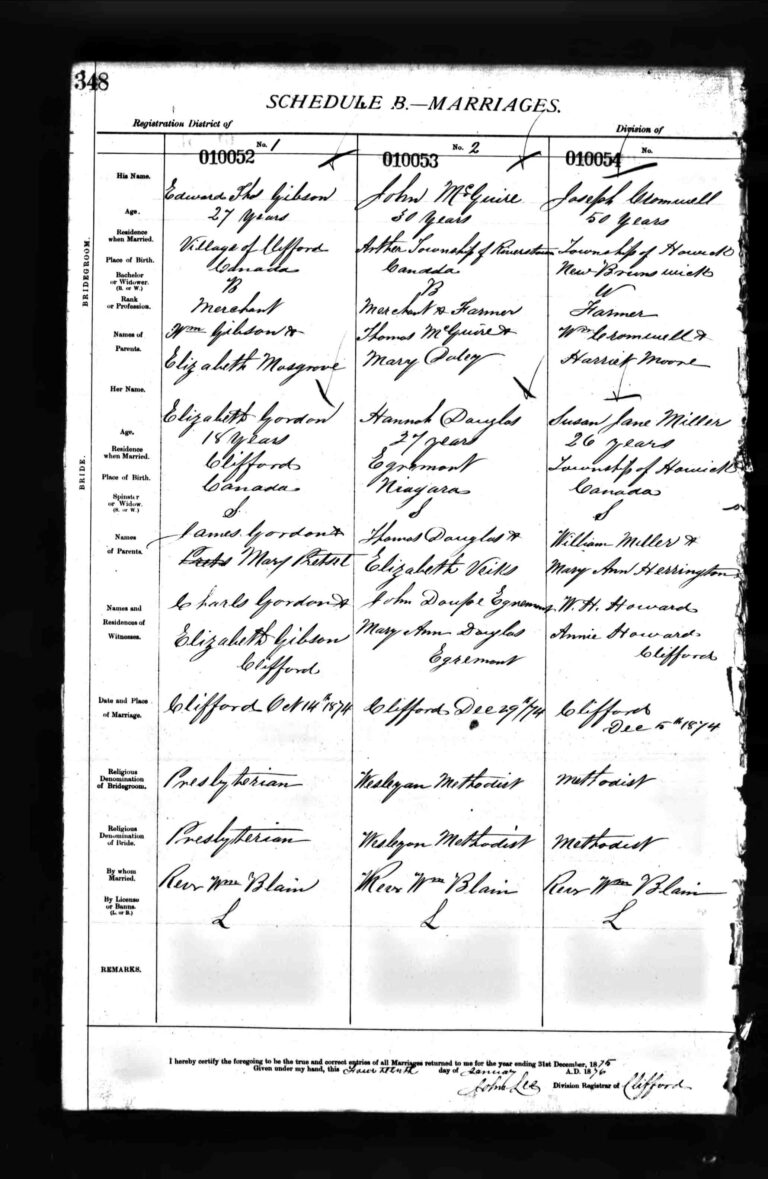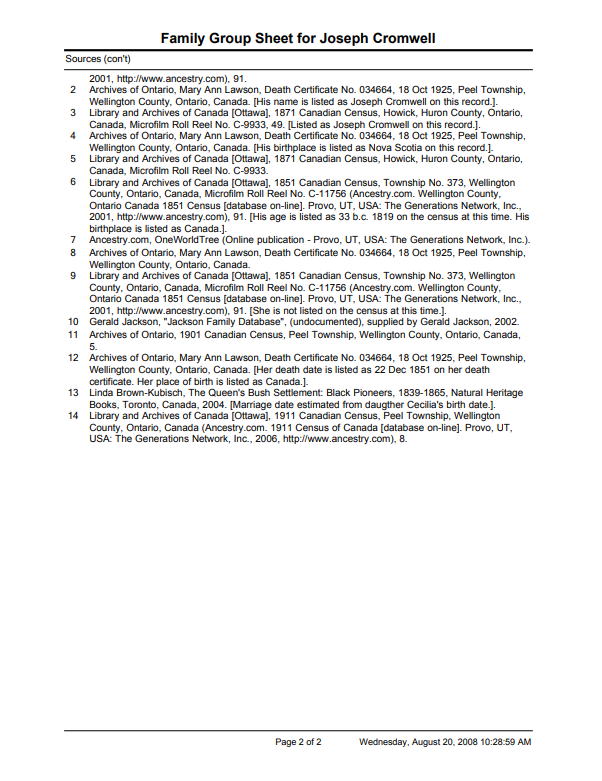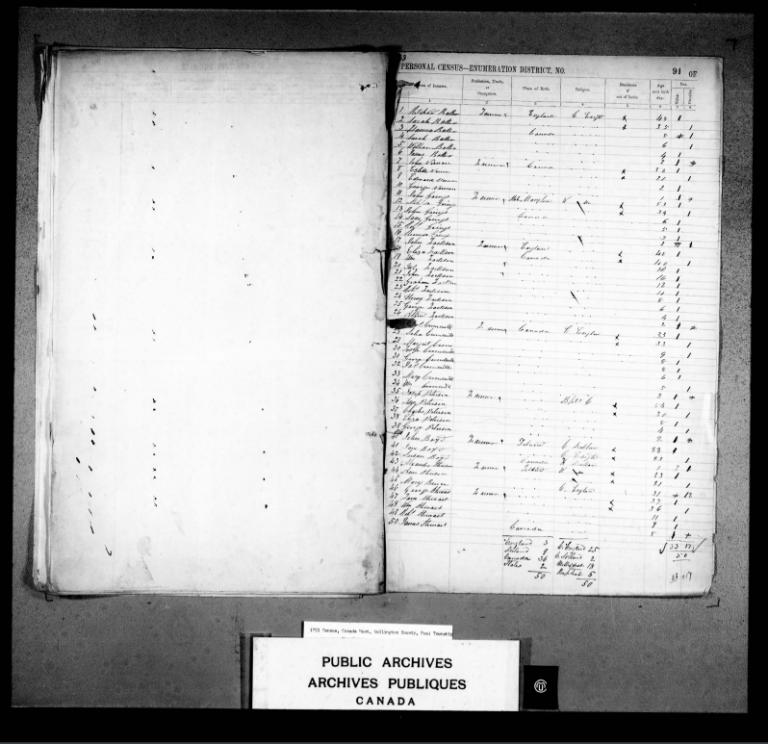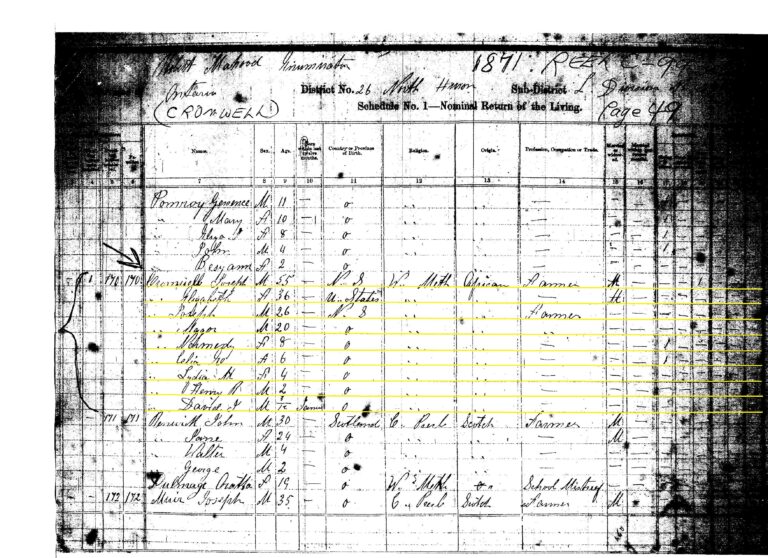
Date of Birth
March 10 1818
Place of Birth
Weymouth Falls, Digby County, Nova Scotia, Canada
Towns / Cities Moved Into
Weymouth Falls, Digby County, Nova Scotia, Canada
Howick, Huron East, Ontario, Canada
Peel, Wellington County, Ontario, Canada in 1852
Known Occupation
Farmer
Religion
Methodist
Spouse
Death Information
Year of death
January 23 1904
Place of death
Huron North, Howick County, Ontario, Canada
Cause of death
-
Burial location
-
Parents

William Cromwell

Harriet Cromwell
Marital Status


Married Cecilia Hatfield
1841
Baie-Ste-Marie, Annapolis, Nova Scotia, Canada
Siblings










Children





Narrative / Story
Joseph Cromwell’s life, spanning from 1818 to 1904, was a testament to the resilience and adaptability required in the 19th century. Born on March 10, 1818, in Weymouth Falls, Digby County, Nova Scotia, Canada, Joseph was the son of William and Harriet Cromwell. He grew up in a time of significant change, with the Act of Union in 1840 marking a pivotal moment in Canadian history, uniting Upper and Lower Canada.
Joseph’s early life in Weymouth Falls was likely shaped by the rural and agricultural nature of the region. As a young man, he witnessed the transformation of the Canadian provinces and the gradual move towards a more unified nation. This period was marked by political and social changes that would lay the groundwork for the Canada we know today.
In 1841, Joseph’s life took a new turn when he married Cecilia Hatfield in Baie-Ste-Marie, Annapolis, Nova Scotia. Their union was blessed with children: Marguerite Geneviève, George, James, William, and Mary Ann Cromwell. The family, devout Methodists, navigated the challenges of their times with faith and resilience.
Joseph’s occupation as a farmer meant a life of hard work and close ties to the land. Farming in the 19th century was labor-intensive and required a deep understanding of the seasons and the land. Joseph, like many of his contemporaries, would have been deeply affected by the economic and climatic challenges of the era.
The Cromwell family’s journey took a significant turn when they moved to Howick, Huron East, Ontario, in 1852. This move was part of a larger pattern of migration within Canada, as families sought new opportunities and better living conditions. In Peel, Wellington County, where they later settled, Joseph continued his work as a farmer, contributing to the community and the development of the region.
Tragedy struck with the death of Cecilia, after which Joseph remarried Susan Jane Miller in 1874 in Clifford, Ontario. Their marriage brought eight more children into the family, a testament to the resilience and hope that characterized Joseph’s life.
Throughout his life, Joseph and his family would have experienced the socio-economic challenges of their time. As a farmer, he would have faced the uncertainties of crop yields and market prices. The family’s Methodist faith provided a moral and social framework, helping them navigate the complexities of their era.
Joseph Cromwell’s life was a reflection of the broader Canadian experience in the 19th century. His migrations, work, and family life were intertwined with the significant historical events of his time. His story is one of perseverance, adaptation, and the enduring strength of family and faith.
Joseph passed away on January 23, 1904, in Wellington, Ontario, Canada, at the age of 85. His life, marked by personal triumphs and challenges, mirrored the evolving Canadian landscape. He was laid to rest in Huron North, Howick County, leaving behind a legacy of resilience and adaptability that would inspire generations to come.







